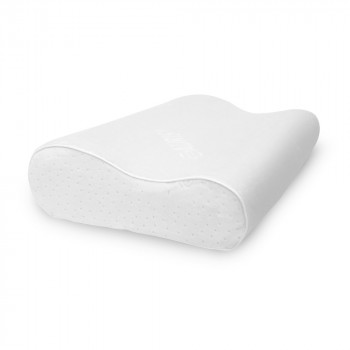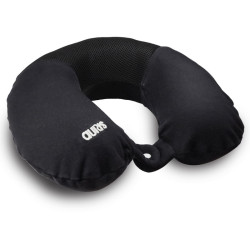 What is torticollis?
What is torticollis?
Torticollis is a painful muscle contracture that affects the neck, making head movements difficult or even impossible. This condition, which is often benign, occurs suddenly and can last from a few hours to several days. Although it is a common disorder, it can be particularly disabling in everyday life.
The different forms of torticollis
Torticollis can be classified into two broad categories:
Acute or occasional torticollis:
Occurs suddenly, often on waking. Caused by poor posture, a sudden movement or a cold snap.
Chronic or pathological torticollis:
Linked to underlying illnesses such as neurological disorders, congenital malformations or trauma. More rare, it requires in-depth medical treatment.
What are the symptoms?
Torticollis manifests itself by characteristic signs:
- Sharp or stabbing pain: located on one side of the neck, it can sometimes radiate to the shoulders or upper back.
- Muscular stiffness: the head is locked in a tilted or rotated position.
- Reduced mobility: turning the head becomes difficult or impossible.
- Increased sensitivity: the affected area is often sensitive to touch.
How can torticollis be relieved?
Although torticollis is generally benign, it is important to take simple steps to relieve the pain and recover quickly.
Immediate treatments
- Apply heat: a hot water bottle, hot towel or heating patch will help relax tight muscles.
- Massage gently: a light massage with a relaxing oil can reduce muscle tension.
- Take a painkiller: paracetamol or a mild anti-inflammatory can be used in case of intense pain.
- Rest the neck: avoid sudden movements and use an ergonomic pillow for good support during sleep. Use a cervical cushion if necessary.
Stretching exercises
As the pain begins to subside, gentle exercises can restore mobility:
Slowly tilt your head from side to side. Rotate your head slightly as far as is comfortable. Gently stretch the muscles by tilting the ear towards the opposite shoulder...
Complementary therapies
For cases of recurrent or persistent torticollis, several natural approaches can be considered:
- Magnet therapy: this method, which uses magnets to stimulate blood circulation and reduce muscle tension, can offer rapid relief from neck pain.
- Acupuncture: by stimulating certain energy points, acupuncture helps to relax muscles and ease pain.
- Osteopathy or chiropractic: these disciplines correct spinal misalignments and restore muscle balance.
- Relaxation and yoga: these practices help to reduce stress, a frequent cause of torticollis.
When should you consult a doctor?
If torticollis persists for more than a few days, is accompanied by fever, severe headaches or tingling in the arms, it is important to consult a doctor. These symptoms may indicate a more serious underlying condition, such as a herniated disc or infection.
Torticollis, a common but manageable ailment
Although uncomfortable, torticollis is generally not serious and can be relieved quickly with appropriate care. By adopting healthy postures and taking care of your neck, you can reduce the risk of recurrence.
For people who may be more prone to neck stiffness due to osteoarthritis, gentle approaches such as magnetic therapy or yoga can provide real relief.



